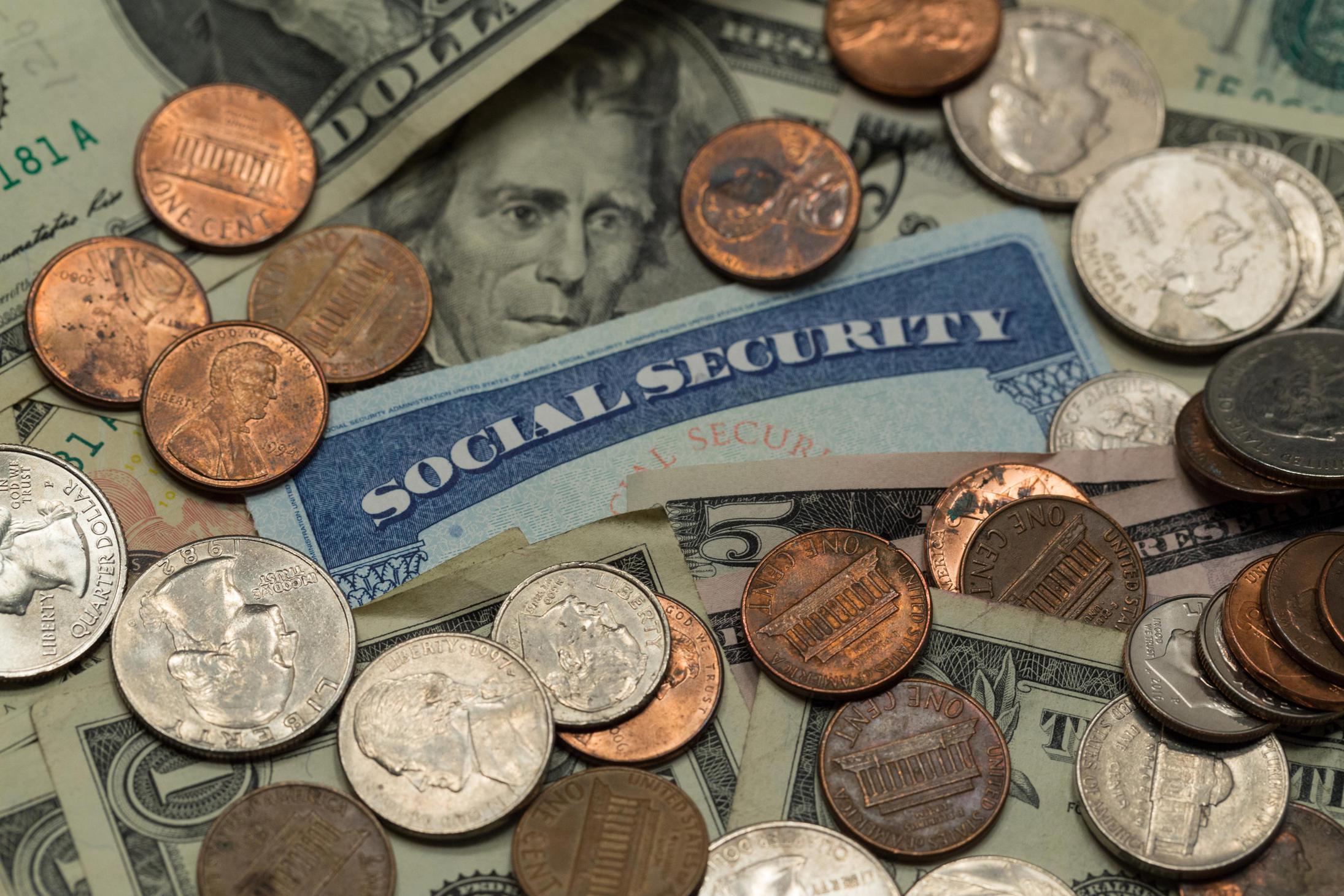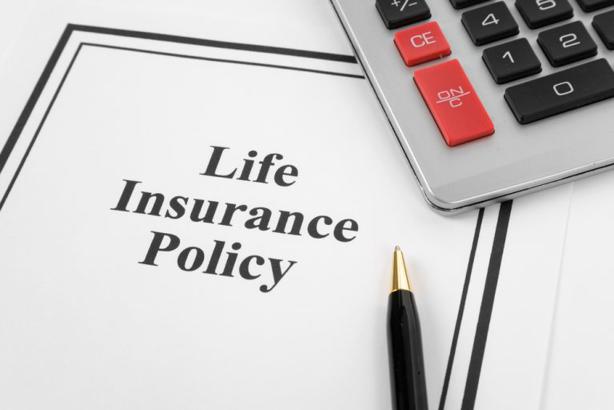Life insurance is an effective tool for providing financial security to your loved ones in case of any unexpected event. However, what if you need cash urgently and you have a life insurance policy? Well, you don’t need to worry as it is possible to cash in a life insurance policy.
Cashing in a life insurance policy can provide a lump sum amount of money that can be used for various purposes, such as paying off debts, medical bills, or even taking a vacation. However, it’s important to understand the process and implications of cashing in a life insurance policy before making any decisions.
In this blog, we will discuss everything you need to know about cashing in a life insurance policy.
Cash In A Life Insurance Policy
In this article, we will discuss the concept of cashing in a life insurance policy. We will explore what it means to cash in a policy, why someone may choose to do so, and the potential benefits and drawbacks of this decision.
We will also examine the different ways in which a policy can be cashed in and the various factors that may affect the process.

Understanding Life Insurance Policy Cash Value
Life insurance is an essential financial product that offers a valuable death benefit to your beneficiaries in the event of your untimely death. However, did you know that some life insurance policies also offer a cash value that grows over time? The cash value is a portion of the premium payments that earn interest and can be accessed by the policyholder.
It’s important to understand the factors that affect the cash value of your policy, such as the type of policy, premium payments, and the performance of the insurance company’s investments. By understanding the cash value and how it works, you can make informed decisions about your life insurance policy.

What is cash value in a life insurance policy?
The cash value in a life insurance policy is the accumulated amount of money that policyholders can access during their lifetime. It is similar to a savings account within the life insurance policy, where a portion of the premium payments is invested and accrues interest over time. The growth of the cash value depends on the type of life insurance policy, with whole life insurance policies offering higher and more stable growth compared to universal and variable life policies.
The cash value can be accessed through surrenders, policy loans, or partial withdrawals. Understanding how the policy’s cash value works is essential for determining the best way to utilize this valuable asset.
How is cash value determined?
The calculation of cash value in a life insurance policy is dependent on various factors. These factors generally include the premium payment amount, policyholder’s age and gender, policy’s death benefit, and the insurer’s interest rate.
Generally, during the early years of the policy, the cash value grows gradually. Over time, the cash value accumulation accelerates and eventually grows to a certain amount that the policyholder can access.
It is essential to note that different insurers have different approaches to calculating the cash value in a life insurance policy.
Hence, it is recommended to consult with your insurer or an independent financial advisor to understand how your policy’s cash value works.
How does the cash value of a policy grow?
The cash value in a life insurance policy generally grows through two mechanisms: investment earnings and premium payments. As the policyholder pays premiums, a portion of it is allocated towards the cash value account. The interest earned on the cash value account also adds to the overall growth of the policy’s cash value.
Investment earnings on the cash value account are typically based on the insurer’s general account investment strategy, which can be varied and complex. However, most insurers invest in conservative assets such as bonds and other fixed-income securities.
It is worth noting that the growth rate of the cash value in a life insurance policy is generally lower than other investment options due to the policy’s cost structure and conservative investment strategy.
Nevertheless, the cash value account can be a valuable financial tool for those looking to borrow against their policy or use it to pay premiums or other expenses in their later years.
Are there any limitations on cash value growth?
While the cash value in a life insurance policy does offer potential growth opportunities, there are some limitations to consider. Firstly, policyholders may be subject to surrender charges if they withdraw cash value from their policy too soon.
These charges are designed to cover the insurer’s administrative costs and can decrease the amount of cash value available for withdrawal.
Another limiting factor is the policy’s dividend payouts, which can affect the growth rate of the cash value account. If the insurer decides to allocate dividends towards the policy’s death benefit or other expenses, the cash value growth may be slower than expected.
Overall, while the cash value in a life insurance policy may not offer the same level of growth as other investment options, it can be a useful financial tool for those looking to access cash later in life.
Benefits of Cashing in a Life Insurance Policy
Are there any limitations on cash value growth?
Life insurance policies are designed to provide financial support to the policyholder’s beneficiaries in the event of their death.However, some policies also offer a cash value component that can be accessed by the policyholder during their lifetime. While the cash value in a life insurance policy does offer potential growth opportunities, there are some limitations to consider. Firstly, policyholders may be subject to surrender charges if they withdraw cash value from their policy too soon.
These charges are designed to cover the insurer’s administrative costs and can decrease the amount of cash value available for withdrawal. Another limiting factor is the policy’s dividend payouts, which can affect the growth rate of the cash value account.
If the insurer decides to allocate dividends towards the policy’s death benefit or other expenses, the cash value growth may be slower than expected. Overall, while the cash value in a life insurance policy may not offer the same level of growth as other investment options, it can be a useful financial tool for those looking to access cash later in life. It’s important for policyholders to understand any potential limitations on cash value growth before making a decision to cash in their policy.
Benefits of Cashing in a Life Insurance Policy
If you’re considering cashing in your life insurance policy, there are a few benefits to keep in mind. Firstly, it can provide an immediate source of cash if you’re in need of funds. This can be particularly helpful for those facing unexpected expenses or financial difficulties.Cashing in a life insurance policy can also provide a sense of financial freedom and flexibility. With the cash in hand, you can allocate the funds to various expenses or investments as you see fit, without restrictions or limitations.
Finally, cashing in a life insurance policy can be a smart financial move if you no longer need the coverage or if the premiums have become unaffordable. By accessing the cash value in the policy, you can free up funds for other financial priorities. Overall, cashing in a life insurance policy can be a viable option for those looking for financial flexibility and freedom. However, it’s important to weigh the potential benefits against any potential limitations or drawbacks before making a decision.

What are the benefits of cashing in a life insurance policy?
Life insurance policies offer a cash value component that can be accessed by the policyholder during their lifetime. Cashing in a life insurance policy can provide an immediate source of cash if you’re in need of funds.
It also offers financial freedom and flexibility, as you can allocate the funds to various expenses or investments as you see fit. Additionally, cashing in a life insurance policy can be a smart financial move if you no longer need the coverage or if the premiums have become unaffordable. However, policyholders must be aware of any limitations on cash value growth, such as surrender charges and dividend payouts, before making a decision to cash in their policy.
How can cashing in a policy help with financial needs?
Cashing in a life insurance policy can provide a lump sum payment that can be used to meet a variety of financial needs. For example, the funds can be used to pay off debt, fund college education, invest in a business, or cover unexpected medical expenses.
It can also provide a source of income for retirees who no longer need the coverage but still require financial assistance.
However, it’s important to weigh the pros and cons of cashing in a policy before making a decision. Policyholders should consider their long-term financial goals and evaluate alternative options, such as borrowing against the policy or withdrawing partial amounts, to ensure they are making the best financial move.
Conclusion
Cashing in a life insurance policy can offer several benefits, including immediate access to funds, financial freedom and flexibility, and smart financial decision-making. However, it’s important to thoroughly evaluate the policy’s limitations and consider alternative options before deciding to cash in.
Ultimately, policyholders must make the decision that best aligns with their long-term financial goals and current financial needs.
Can cashing in a policy help with debt repayment?
Yes, cashing in a life insurance policy can be a useful strategy for debt repayment. By receiving a lump sum payment, policyholders can use the funds to pay off high-interest credit cards, loans, or other debts. This can help improve their financial stability and credit score.
However, individuals should also consider alternative options, such as negotiating with creditors to reduce the balance or interest rates, before cashing in a policy. Additionally, if the policyholder has dependents who rely on the death benefit, this option may not be the best choice as it can jeopardize their financial security.
Considerations before cashing in a policy
Before making the decision to cash in a life insurance policy, it’s crucial to evaluate other options and consider the potential consequences. For instance, policyholders should be aware that surrendering the policy can result in tax implications or reduced death benefits for their beneficiaries.
Additionally, long-term financial goals, such as retirement planning or estate planning, should be taken into account. Seeking advice from a financial advisor can help individuals make a well-informed decision that aligns with their overall financial plan.
Are there any tax implications associated with cashing in a policy?
Yes, there can be tax implications associated with cashing in a life insurance policy. When the cash value of the policy exceeds the total premiums paid, the excess amount is subject to income tax.
Additionally, surrendering the policy can result in the recapture of any previously deducted premiums.
It’s important to consult with a tax professional to understand the potential tax consequences of cashing in a policy and how it may impact your overall financial situation.
Conclusion
Cashing in a life insurance policy can be a helpful tool for debt repayment, but it’s essential to consider all of the potential consequences and evaluate alternative options.
Policyholders should also take into account their long-term financial goals and seek advice from a professional financial advisor or tax professional to make a well-informed decision.
Risks of Cashing in a Life Insurance Policy
Cashing in a life insurance policy may seem like an easy solution for accessing cash quickly, but there are risks involved. By surrendering the policy, you are forfeiting the death benefit and any potential future investment gains. Furthermore, the surrender value of the policy may be less than the total premiums paid, resulting in a loss.
Before making the decision to cash in a policy, it’s essential to weigh the potential risks against the benefits and consider alternative options such as borrowing against the policy or using other assets for debt repayment.
Ultimately, the decision to cash in a life insurance policy should be made thoughtfully and with the guidance of a trusted financial advisor.

What are the potential risks of cashing in a life insurance policy?
Cashing in a life insurance policy may seem like an easy solution for accessing cash quickly, but there are potential risks involved that need to be considered. When you surrender the policy, you are forfeiting the death benefit, which can be a significant loss for your beneficiaries. Moreover, the surrender value of the policy may not cover the total premiums paid, resulting in a loss.
Additionally, if you cash in the policy early, you may face tax implications that can further reduce the value of the payout. Before making the decision to cash in your policy, it’s critical to weigh the potential risks against the benefits carefully.
Depending on your specific situation, there may be alternative options available, such as borrowing against the policy or using other assets for debt repayment. It’s advised to consult with a financial advisor, who can evaluate your financial strategy and determine if cashing in a life insurance policy is the right decision for you.
In conclusion, while cashing in a life insurance policy may be quick and easy, it’s crucial to consider the potential risks before making such a decision. Evaluate your financial situation carefully, explore alternative options, and seek professional guidance from a trusted financial advisor. This way, you can make informed decisions that align with your long-term financial goals.
How can cashing in a policy affect the death benefit?
Cashing in a life insurance policy can affect the death benefit, which is the main reason people typically purchase life insurance. When you surrender your policy, you forfeit the death benefit, which means your beneficiaries will not receive a financial payout when you pass away. This can be a significant loss for your loved ones, especially if they are reliant on the death benefit to cover expenses such as mortgage payments, funeral expenses, or other financial obligations.
Therefore, it’s essential to carefully consider the potential impact on your beneficiaries before deciding to cash in your life insurance policy.
Are there any penalties or fees for cashing in a policy?
Yes, there can be penalties and fees for cashing in a life insurance policy. These fees can include surrender charges or taxes on the cash value that is withdrawn.
Surrender charges are typically a percentage of the cash value that decreases over time, but can still be quite substantial if the policy is surrendered in the early years. Additionally, if the policy has any outstanding loans or interest, those amounts may be deducted from the surrender value as well.
It’s important to review your policy documents and consult with your insurance company or financial advisor to understand any potential fees or penalties before cashing in your policy.
Can cashing in a policy have any impact on future insurance coverage?
Cashing in a life insurance policy can have an impact on your future insurance coverage. If you cancel your policy, you are essentially giving up your coverage and will no longer have a death benefit to protect your loved ones.
Furthermore, if you decide to purchase a new policy in the future, your premiums could be higher due to age, health, and other factors.
It’s important to consider your long-term insurance needs before making the decision to cash in your policy.
Keep in mind that there may be other options available to you, such as taking out a loan against the cash value of your policy or reducing the death benefit to lower premiums.
Discussing these options with your insurance company or financial advisor can help you make the best decision for your individual situation.
Alternatives to Cashing in a Life Insurance Policy
If you’re considering cashing in your life insurance policy, there are several alternatives to consider first. One option is taking out a loan against the cash value of your policy.
This means you can access the funds without canceling your policy and losing coverage for your loved ones. Another option is reducing the death benefit to lower your premiums. This allows you to keep your policy active while still making it more affordable.
Additionally, you may be able to explore options for selling your policy to investors in exchange for a lump sum payment. It’s always a good idea to speak with a financial advisor or your insurance company to explore all your options before making any decisions.
With careful consideration, you can find the best solution for your unique financial situation.

What are some alternatives to cashing in a life insurance policy?
If you’re thinking of cashing in your life insurance policy, it’s important to understand all of your options. Taking a loan against your policy’s cash value maintains your coverage while accessing funds.
You can also reduce your death benefit to lower premiums, or potentially sell your policy to investors. Consulting with a financial advisor or your insurance company can help you find the best solution for your financial needs. By exploring alternatives, you can make an informed decision to protect yourself and your loved ones.
How can a policy be used to secure a loan?
If you have a life insurance policy with a cash value, you may be able to borrow against it to secure a loan. This option allows you to access funds without completely surrendering your policy. The loan amount and interest will need to be repaid, but the collateral of the policy ensures that you won’t have to go through a credit check or provide other assets for security.
It’s important to note that any outstanding loans and interest will be deducted from the death benefit if you pass away before the loan is repaid.
What should you consider before selling your policy?
Selling a life insurance policy, also known as a life settlement, can provide a lump sum payment to the policyholder. However, it’s important to carefully consider the potential drawbacks. The payment received may be less than the policy’s death benefit, and the new owner of the policy will be the beneficiary upon the policyholder’s death.
Additionally, selling a policy can have tax and estate planning implications. It’s crucial to thoroughly research and consult with a financial advisor before deciding to sell your life insurance policy.
Is it possible to sell a life insurance policy?
Yes, it is possible to sell a life insurance policy through a process called a life settlement. This involves selling the policy to a third-party buyer who takes over the premium payments and becomes the beneficiary upon the policyholder’s death.
The amount received from the sale may be more than the policy’s cash surrender value but less than the death benefit. The decision to sell a policy should only be made after careful consideration and consultation with a financial advisor.
It’s also important to note that not all policies are eligible for a life settlement, and the process can be complex and time-consuming.
How can a policy be surrendered to receive a partial payout?
If a policyholder no longer needs their life insurance policy, they can surrender it to the insurance company for a partial payout. This process is known as a cash surrender.
The amount received will be lower than the policy’s death benefit as it takes into account the company’s fees and expenses.
Furthermore, a cash surrender may have tax implications, so it’s essential to consult with a tax advisor before making any decisions.
Keep in mind that surrendering a policy is not always the best option and should only be considered after weighing all the other alternatives.
Making the Decision to Cash in a Life Insurance Policy
Life insurance policies are typically purchased as a means of providing financial security for loved ones in the event of the policyholder’s death. However, there are many situations where the policy is no longer necessary, and the policyholder may want to cash it in. Before making this decision, it’s important to carefully consider all options and fully understand the consequences.
In some cases, it may be more beneficial to sell the policy to a third party for a higher payout. Whatever the decision, it’s crucial to seek advice from a financial professional to ensure that the choice made is the right one for the policyholder’s situation.

What factors should be considered when deciding to cash in a policy?
There are several factors that should be considered when deciding whether to cash in a life insurance policy. Firstly, it’s important to assess the financial needs of the policyholder and their beneficiaries. If the policy is no longer needed to provide financial security, then cashing it in could be a viable option.
Another consideration is the cost of maintaining the policy, particularly if the premiums have become too expensive or unaffordable.
It’s also important to consider the current value of the policy and any potential tax implications.
Cashing in a policy could result in a significant tax liability, so it’s important to fully understand the tax implications before making a decision. Finally, it’s important to assess any other alternatives, such as borrowing against the policy or taking a loan, to determine the best course of action.
How can a financial advisor or insurance agent help with the decision?
When deciding whether to cash in a life insurance policy, it can be helpful to seek advice from a financial advisor or insurance agent. These professionals can provide valuable insight into the potential costs and benefits of cashing in the policy.
They can also help the policyholder explore other options, such as selling the policy or borrowing against it, and weigh the pros and cons of each approach. A financial advisor can also help the policyholder assess their overall financial situation and determine whether cashing in the policy is the best course of action for their specific needs and goals.
What are some common myths about cashing in a life insurance policy?
There are several myths surrounding the decision to cash in a life insurance policy, and it’s important to separate fact from fiction before making a final decision. One common misconception is that cashing in the policy is the only way to access its value.
In reality, policyholders may have other options, such as selling the policy or taking out a loan against it.
Other myths include the belief that cashing in a policy will result in significant tax consequences, or that it will negatively impact the policyholder’s credit score. In many cases, these fears are unfounded or can be mitigated through careful planning and consultation with a financial professional.
What steps should be taken to cash in a policy?
Before cashing in a life insurance policy, it’s important to explore all available options and understand the potential consequences. First, assess the value of the policy and determine if there are any outstanding loans or debts against it.
Next, research the tax implications and potential impact on your credit score.
Seeking guidance from a financial advisor or accountant can help clarify any concerns and ensure the decision aligns with your overall financial goals.
If cashing in the policy is still the best option, contact the insurance company and follow their specific procedures for surrendering the policy and receiving the payout.
Overall, taking a thoughtful and informed approach can help ensure the best outcome when cashing in a life insurance policy.
Conclusion of Cash In A Life Insurance Policy
If you find yourself in need of extra cash, you may be able to access funds from a life insurance policy. This can include both term and permanent policies.
The amount of money you can receive will depend on the type of policy, how long you’ve had it, and the amount of cash value it has accumulated. There are several options for accessing the funds, including surrendering the policy, taking out a loan, or utilizing accelerated death benefits. It’s important to carefully consider the potential impacts on your coverage and long-term financial plans before making a decision.
FAQ’s of Cash In A Life Insurance Policy
How much do you get when you cash in a life insurance policy?
The amount you get when you cash in a life insurance policy depends on the specific policy and the terms outlined in the contract. Generally, a life insurance policy can be surrendered for its cash value, which is the amount of money that has accrued in the policy over time. However, cashing in a policy may result in taxes and penalties, and it may be more beneficial to explore other options such as a life settlement or a policy loan.
What is the cash value of a $250life insurance policy?
As an AI language model, I don’t have access to current market values and policy descriptions to provide an accurate answer. Please consult with your insurance provider for more information.
What happens if I cash in my life insurance policy?
If you cash in your life insurance policy, you will receive a lump sum payment from the insurance company. However, depending on the type of policy you have and how long you have owned it, the amount you receive may be less than the total premiums you have paid. Additionally, cashing in your policy will terminate your coverage, so your beneficiaries will no longer receive a payout upon your death. Consider all options and consult a financial advisor before making any decisions regarding your life insurance policy.
What is the cash value of a $100life insurance policy?
As an AI language model, I do not have access to current financial data. However, the cash value of a $100 life insurance policy would depend on various factors such as the age of the policy, the insurance company’s policy provisions, and the insured person’s health and age. It is best to check with the respective insurance company or an insurance agent to determine the current cash value of the policy.
How do I determine the cash value of my life insurance policy?
To determine the cash value of your life insurance policy, you should review your policy documents and contact your insurer or agent to ask for an update on your policy’s cash value. It is important to note that the cash value may vary based on factors such as policy type, age, and performance of the investment component of the policy.













